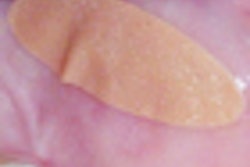A New York University (NYU) dental research team has received a four-year, $2.2 million grant from the National Institute of Dental and Craniofacial Research to use whole genome sequencing to identify the strains of lactobacilli bacteria that contribute to the development of severe early childhood caries.
Severe early childhood caries can destroy most of a child's teeth by age 3 and disproportionately affects underserved populations, including American Indians and Alaskan natives, NYU stated in a press release. Although the link between lactobacilli bacteria and severe early childhood caries has been known for almost a century, progress in delineating which of 140 species of this bacteria are responsible for the disease has remained elusive.
The study's principal investigators, Page Caufield, DDS, PhD, aprofessor of cariology and comprehensive care, and Yihong Li, DDS, a professor of basic science and craniofacial biology, will analyze several hundred bacteria samples from children with severe early childhood caries and their parents, and from caries-free children and their parents. Sampling and collection will take place at Bellevue Hospital Center in New York City.
Sequencing will be conducted by co-investigators at University College in Ireland and at the Wellcome Trust Sanger Institute in the U.K. Drs. Caufield and Li will collaborate with experts on bacterial genome evolution at the American Museum of Natural History to identify sequences common to children with severe early childhood caries and their parents.
"The findings from our new study ... will help propel the development of a diagnostic test that dentists can administer chairside to identify those at risk," Dr. Caufield said.



















